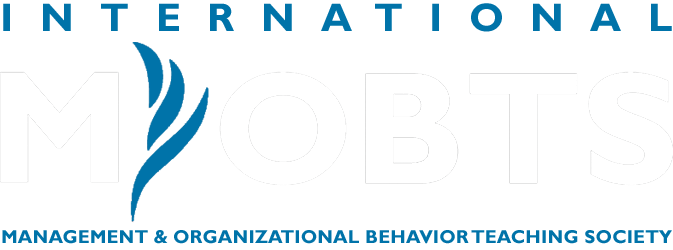
Call for Papers
Kansai Gaidai University | Hirakata, Osaka, Japan
Submission Deadline is Friday, January 23, 2026
Conference Dates: 16-18, June 2026
Theme: Fading of an Era, Rising of the New?
Submission Guidelines | Paper Submission
International MOBTS 2026 Team:
- Stephen Zurcher, Kansai Gaidai University
- Keith Sakuda, University of Hawaii – West Oahu
- Brandon Taylor Charpied, MOBTS
Join us at the 2026 MOBTS International Conference, hosted by Kansai Gaidai University, from June 16 – 18, 2026, at the Nakamiya Campus in Hirakata, Osaka. Located halfway between the modern city of Osaka and the cultural capital of Kyoto, Hirakata offers convenient access to two of Japan’s most visited urban centers. Osaka, known as the Kitchen of Japan, boasts a unique culinary collection ranging from world-famous street food to Michilin 3-star dining. Kyoto, the center of traditional Japanese culture, is home to 17 UNESCO World Heritage Sites, including the historic Kinkakuji Golden Pavilion. Both cities are a quick 30-minute train ride from Hirakata station.
About Kansai Gaidai University
A pioneer in international education, Kansai Gaidai has long held the distinction of hosting Japan’s the largest outbound and largest inbound study abroad programs. Drawing from its network of over 500 international partners institutions, the campus welcomes over 1000 exchange students each year from many of the world’s leading universities. With internationalization at its core, Kansai Gaidai is the perfect campus for bringing together scholars dedicated to teaching and international education.
Conference Theme: Fading of an Era, Rising of the New?
The American Hegemony has dominated the post-World War II era of economics, politics, and culture, and modern academia has long followed an American model of scholarship. However, the country’s recent policy shifts in trade, education, and immigration signal an intent to abdicate leadership in global affairs, including international business and education.
America’s retreat will create opportunities for others to claim new leadership roles and Asia is aggressively positioning itself for success. Three of the five largest economies reside in Asia, and each holds its own distinct approaches to business and management.
Asia is also reshaping its approach to international student mobility. No longer satisfied with being the world’s largest source of international students, a growing number of Asian countries are introducing policies and programs to internationalize their classrooms as part of national economic strategies. Japan, Malaysia, Taiwan, and South Korea have seen surging growth in international enrollments, with the majority of student coming from within Asia.
This conference will focus on the changing landscape of international management education from both a macro- and micro-perspective. Attendees are encouraged, but not required, to submit proposals which examine either the global implications of policy shifts or practical approaches to teaching challenges. Special interest will be for sessions which promote teaching of indigenous or non-western management philosophies and practices, or which embed culture (traditional or popular) into classroom lessons.
MOBTS accepts six different submission types to its conference. Details and descriptions of each are available in the Submission Guidelines:
- Experiential Activities or Exercises
- Professional Development Workshops (PDW)
- Roundtable Provocations
- Symposia or Panels
- Scholarship of Teaching & Learning (SoTL) Research Papers
- Case Studies
Suggested Session Inspirations
The conference invites activities, exercises, and demonstrations, empirical studies, case studies, and theoretical explorations on a variety of topics, including but not limited to:
- New Leaders in International Management Education
Non-U.S. institutions now hold the majority of the Top 10 rankings in the Financial Times Global MBA programs and continue to influence management education.- Who is best positioned to assume leadership roles in business education? Or, is it too soon to discount American ingenuity and innovation?
- Share your thoughts on the future of management education.
- From National Policies to Classroom Practicalities
Countries around the world are imposing new policies and directives in higher education (public funding, student visas, curriculum oversight, etc.) to implement economic, cultural, and political reforms.- How will changes in national policies related to higher education impact management education?
- Share how you are responding to changes at your institution.
- Teaching Non-Western and Indigenous Management in the Classroom
Kaizen (Japan), Guanxi (China), Chaebol (South Korea), and Dharma (India) are examples of practices, principles, structures, and spiritual philosophies developed in Asia which can be tied to management.- How can indigenous management best be taught in the classroom?
- Share experiential activities that teach management lessons from your country.
- Pop Culture in the Classroom: Using Cultural Trends to Teach Management
Manga, anime, KPOP, and Chinese Cinema are multibillion dollar industries loved by students around the world.- How can we tap into popular culture to engage students?
- Share case studies of popular companies that teach lessons in management
- Traditional Culture in the Classroom: Connecting the Past and Present to Prepare Students for their Futures
The Kaitokudō (懐徳堂), an Osaka merchant academy (1724 – 1868) which taught Confucian-based moral education, is credited with inspiring the core philosophy of modern-day moral capitalism.- How can we draw on traditions and history to prepare students for the future?
- Share case studies of historical institutions or companies connected to cultural traditions that teach lessons in management.
- Collaborative Learning Across Borders
COIL, ERASMUS+, and IFIVE are approaches to virtual exchange and virtual student mobility which promote international learning and cross-cultural experiences.- What types of new and non-traditional partnerships can be developed to address emerging challenges in international management education.
- Share the tools and techniques you use to reach across geographic, political, and cultural borders?
Submission Information
We welcome a diverse range of submissions, including hands-on workshops, symposia/panels, roundtable provocations, empirical papers, theoretical explorations, and case studies. Join a global community of educators at Kansai Gaidai University to exchange ideas and develop actionable strategies for the changing world of management education.
Deadline for Submissions: January 23, 2026
We look forward to lively conversations on the future of international business and education to prepare us for teaching the next generation of management leaders.
